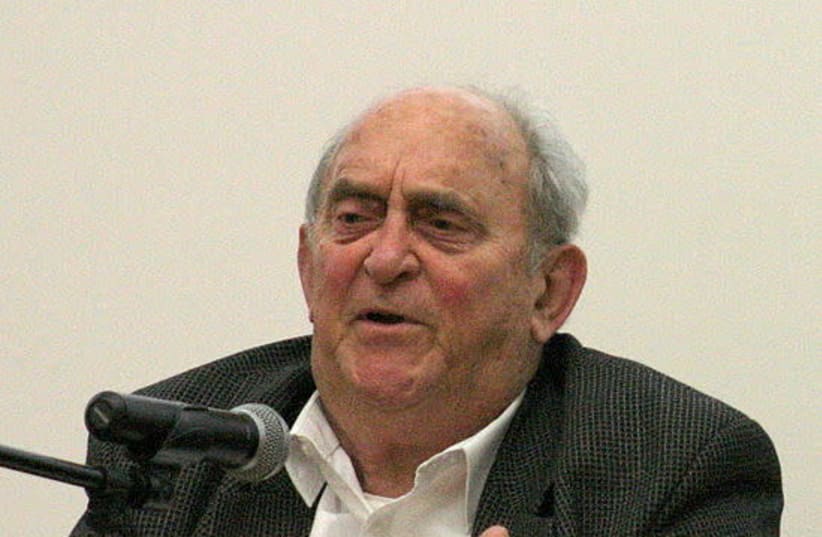President Cyril Ramaphosa expressed his deep condolences at the passing of Goldberg, one of the most prominent white activists in South Africa's long struggle against racial repression.
"This is...a moment for all of us to appreciate Denis Goldberg's brave dedication to our struggle and his lifelong activism in the interest of – and in the physical presence of - poor and vulnerable communities around our country," Ramaphosa said in a statement on Thursday.
He died on Wednesday after suffering from lung cancer for years.
Goldberg, whose family had Lithuanian Jewish origins, was born in Cape Town in 1933.
A communist, he joined the African National Congress' (ANC) armed wing in 1961 to oppose the apartheid regime. He was arrested in 1963 at a clandestine meeting in a Johannesburg suburb and stood trial with several others, including Mandela and Walter Sisulu, in what became know as the Rivonia Trial.
He was convicted on sabotage charges and sentenced to life imprisonment after the judge declined to impose the death sentence.
Being white, Goldberg was not sent to the notorious Robben Island prison along with black political prisoners like Mandela, in keeping with the apartheid regime's philosophy that the country's different races should not mix.
Instead, he was jailed in the capital Pretoria, where he spent most of the time in solitary confinement.
His daughter Hilary, a teacher who was living in a Kibbutz in Israel at the time, formed a committee to free her father from prison along with reknowned activist and negotiator Herut Lapid.
Goldberg was released in 1985 after serving 22 years in prison, agreeing with the government not to take part in political violence, staying shortly with his daughter at Kibbutz Ma'ayanei HaYeshua before traveling to exile in London, where he continued his role in the anti-apartheid struggle.
Despite recieving help from the Israeli government in the negotiation process, Goldberg remained a vocal critic of the state of Israel for its role in the Israeli-Palestinian conflict and its financial and political cooperation with the apartheid regime in South Africa.
He opposed the concept of Zionism and remained an avid supporter of the Boycott, Divest, Sanctions (BDS) movement, routinely comparing Israel's occupation of the Palestinian Territories with South Africa's former apartheid regime.
Apartheid ended with Mandela's victory in the country's first free elections in 1994, but Goldberg did not return to live there until 2002 due to family reasons.
In more recent years, Goldberg criticized failures by the now-ruling ANC to lift enough South Africans out of poverty. He was especially critical of former President Jacob Zuma, who faces several inquiries over corruption allegations during and before his time in office.
"He dedicated his life to achieving the better life we enjoy today and his revolutionary contribution reinforced the non-racial character of our struggle and of our democratic dispensation," Ramaphosa said.
